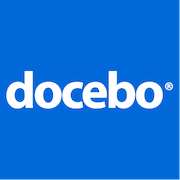Looking to find the best learning management system (LMS) software for your business or organization? Our comprehensive buyer's guide will provide you with everything you need to make an informed decision. Compare features, pricing, and more - start your search today.
Are you looking for an efficient and cost-effective way to manage employee training and development? Look no further than LMS software. With their ability to streamline training processes and increase employee engagement, learning management tools have become a must-have for businesses of all sizes.
However, with the LMS industry forecast to reach almost $400 billion by 2026, there are a lot of options available on the market, finding the right LMS solution for your business can be a daunting task. That's where we come in. In this comprehensive learning management solution buyer's guide, we will give you all the information you need to make an informed decision and select an learning management tool that is perfect for your organization. So, let's dive in!
What is learning management system software?
LMS software is a type of software application that is designed to help organizations deliver and manage their training programs more effectively. These systems provide an online platform for creating, managing, and delivering training content to various stakeholders. Some of the main features of learning management technology include course management, tracking, reporting, and learner engagement tools. LMS solutions are commonly used in a variety of settings, including businesses, schools, and universities. Below are some of the most common use cases for LMS software:
Employee training: LMS systems are often used by businesses to provide employee training programs. These programs can include anything from onboarding new employees to ongoing professional development and compliance training.
Education: learning management technology is also used in the education industry to deliver online courses and manage student progress. These systems allow educators to create and distribute course materials, track student progress, and provide personalized feedback.
Compliance training: Many companies are required by law to provide their employees with certain types of compliance training, such as sexual harassment prevention or workplace safety. LMS software can simplify the process of delivering and tracking this type of training.
Certification programs: LMS software can be used to manage certification programs, which typically involve a combination of online course materials and in-person testing. These systems allow administrators to track progress and ensure that participants meet the necessary requirements.
Professional development: LMS software can be used to provide ongoing professional development opportunities for employees. This can include anything from industry-specific training to leadership development.
A wide range of companies use learning management systems, including small startups and large corporations. Some common types of businesses that use LMS systems include:
Healthcare: Hospitals and healthcare organizations often use this technology to provide ongoing training for their staff.
Manufacturing: Many manufacturers use LMS to deliver training programs on workplace safety and compliance.
Retail: Retailers often use learning management platforms to provide customer service training and onboarding for new employees.
Technology: Technology companies use LMS tools to provide employee training on new software and tools.
Overall, learning management system software is a powerful tool for delivering and managing training programs. By using an LMS system, businesses and educators can ensure that their learners have access to the materials they need, while also tracking progress and engagement.
What are the benefits of LMS software?
A learning management system is a software application used by businesses to manage, deliver, and track employee training and development programs. It is an essential tool for organizations to ensure that their employees have the skills and knowledge they need to perform their jobs effectively. There are several benefits of using an LMS software, which include:
Standardization
LMS software allows businesses to standardize the training of their employees, ensuring that all employees receive the same information and training regardless of time, location, or trainer.
Flexibility
A learning management system allows businesses to provide training at any time and from anywhere. Employees can access the training material from their office, home, or even on the go using their mobile device.
Tracking and reporting
LMS software provides detailed reports and analytics, making it easier for businesses to track the progress of their employees. This information helps businesses to identify areas where employees may need further support.
Automation
LMS software automates many of the tasks associated with training, such as managing course schedules, tracking employee progress, and providing certificates of completion. This frees up valuable time for the HR department to focus on more strategic initiatives.
Cost-effective
By using LMS software, businesses can save money on training costs, such as travel, accommodation, and instructor fees. It also reduces the need for printed materials, which can result in significant savings for businesses. In conclusion, LMS software is a critical tool for businesses looking to provide effective and efficient training and development programs for their employees. With its standardization, flexibility, tracking and reporting capabilities, automation, and cost-effectiveness, LMS software is an investment that businesses simply cannot afford to ignore.
What are the most important features of LMS tools?
Here are ten common features of learning management systems:
Course creation: The ability to create and upload courses is a fundamental feature in most LMS software. This enables course content to be developed and uploaded to the LMS in a range of formats, such as video, audio, and text.
Course management: Course management features enable administrators to manage courses, including setting enrollment policies, assigning instructors, and tracking student progress.
User management: User management features allow administrators to manage users, including setting user permissions, creating user groups, and managing access.
Reporting and analytics: LMS software provides detailed reports on student progress, test results, and course completion rates, giving administrators the ability to track student progress and adapt the course content accordingly.
Social learning: The ability to create social and collaborative elements is an advanced feature that allows students to interact with each other and the instructor.
Mobile learning: Another advanced feature of LMS software is the ability to provide mobile learning solutions, allowing courses to be accessed via mobile devices.
Gamification: The implementation of gaming elements, such as badges and points, within the LMS software can increase student engagement and motivation.
Assessment and testing: Assessment and testing features enable instructors to create quizzes, tests, and assessments to evaluate student knowledge.
Certification and compliance: LMS software can track and manage certifications and compliance requirements, helping organizations comply with regulations and industry standards.
Integration: Integration with other systems such as HR systems, CRMs, and other business applications is an important feature that can streamline workflows and reduce administrative tasks.
In conclusion, while the features may vary depending on the software provider, knowing these common LMS features can help businesses make more informed decisions when choosing an LMS software. The efficiency and ease of use of LMS software make it a valuable tool for corporate and instructional training, elearning, and continuing education.
What to consider when assessing LMS solutions
As businesses evolve, so does the need to upskill and reskill employees. This is where LMS has emerged as a critical part of an organization's training content and development strategy. An LMS is a software application that enables businesses to create, manage and deliver online learning platforms. When purchasing an LMS, there are several factors businesses should consider to ensure they get the best value for their investment.
1. User-friendliness
The LMS should be easy to navigate, intuitive and not require too much training to understand. The user interface should be friendly, with a clean design and straightforward functionalities that will allow users to easily search for and access content.
2. Learning content
The LMS should have a wide variety of customizable content, including text, images, audio, video, and interactive elements. The content should be designed to support different types of learners and cover different subjects that are relevant to the business and its employees.
3. Integration
In LMS should be seamlessly integrated with the company’s existing systems, such as HR and performance management systems. Additionally, it's crucial to ensure that the LMS integrates with third-party software and tools the company already uses, such as Zoom, Microsoft Teams, Salesforce, and others.
4. Customization
The LMS should allow for customization of branding, user roles, and user permissions. Additionally, it should have the ability to support different languages, regions, and time zones.
5. Analytics and reporting
An LMS should have robust analytics and reporting capabilities to track course progress, engagement, and completion rates. It should be able to generate reports on individual, departmental, and company-wide performance, which are user-friendly and easy to understand.
6. Compatibility
The LMS should be compatible with different devices, such as desktops, laptops, tablets, and mobile devices, making it easily accessible to employees.
7. Customer support
Lastly, the LMS should have reliable customer support that's easily accessible and responsive when needed. Whether via email, phone, or live chat, support should be timely and effective. In conclusion, an LMS is a valuable tool that can increase employee engagement, productivity, and improve overall business performance. When selecting an LMS, businesses must consider user-friendliness, learning content, integration, customization, analytics and reporting, compatibility, and customer support. A thorough evaluation of these factors will ensure that the organization gets an LMS that fits its unique requirements and delivers the best learning experience to its employees.
The biggest trends in the LMS software space
As digital transformation continues to shape the future of education, LMS software is set to receive a major upgrade. The year 2023 is expected to bring several big trends in LMS that will shape the future of learning paths and experiences. Here are the hottest LMS software trends for 2023 and beyond that you need to know about:
Personalized learning: LMS will be tailored to individual students' preferences and capabilities, leading to better engagement and achievement.
Immersive learning with AR/VR: The use of Augmented Reality (AR) and Virtual Reality (VR) will create more immersive and realistic learning experiences.
AI-based LMS: Adaptive learning systems will cater to individual learning requirements and provide personalized feedback to learners, leading to a more effective and efficient learning experience.
Nano learning: Bite-sized learning content can be easily consumed by learners and reinforced through various channels. This approach will enable learners to gain knowledge quickly, making the learning process more productive and efficient.
LMS software will continue to transform education, and these trends will provide a more personalized and engaging learning experience for students. By taking advantage of these trends, educational institutions can keep pace with the rapid changes in the digital landscape and provide a competitive advantage to their students.










